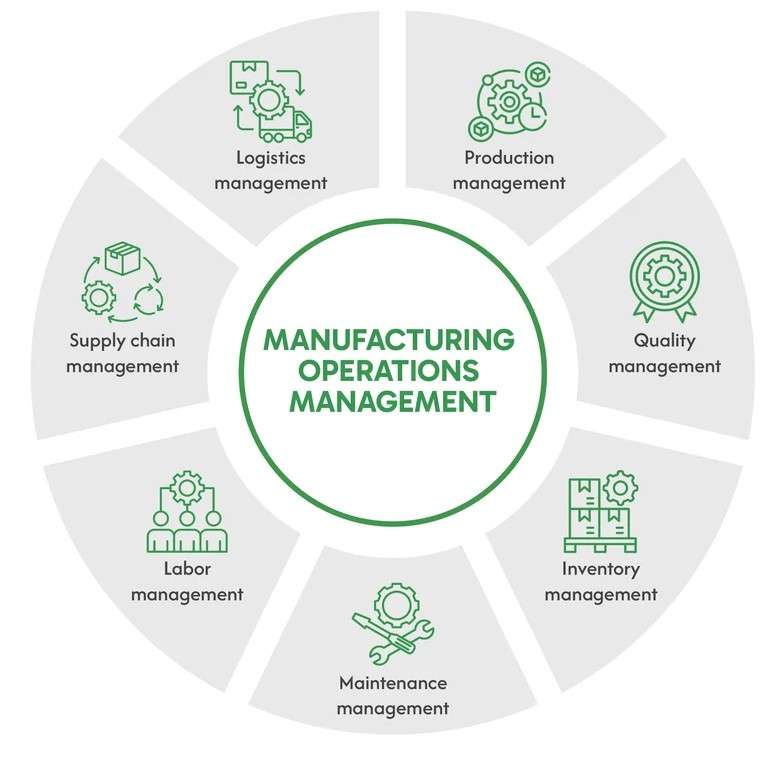
- Career Options After MBA
- Management Consultant
- Marketing Manager
- Investment Banker
- Operations Manager
- Product Manager
- Business Analyst
- Financial Analyst
Career Options After MBA
An MBA opens a wide array of career opportunities across various industries, equipping graduates with strategic, managerial, and leadership skills essential in today’s dynamic business environment. Career Options After MBA typically span sectors, including finance, marketing, consulting, human resources, operations, entrepreneurship, and information technology. Many graduates pursue roles like financial analyst, marketing manager, business consultant, product manager, or operations lead in multinational corporations or start-ups. Specializations during the MBA, such as in finance, marketing, or analytics, often influence job prospects and industry preference. Consulting and investment banking remain highly sought-after fields due to their competitive salaries, exposure to high-level strategic work, and the value of professional development opportunities such as PMP Training. Additionally, many MBAs opt for entrepreneurial ventures, leveraging their education to launch or scale businesses. Emerging fields like data analytics, digital marketing, and sustainability management are also gaining traction among MBA professionals. Public sector roles, non-profits, and international organizations present alternative career avenues for those inclined toward social impact. Career progression post-MBA is typically rapid, with opportunities for advancement into senior management and executive roles. The versatility of an MBA enables professionals to switch industries or functions, making it a powerful tool for career transformation and growth in today’s evolving global economy.
To Explore PMP in Depth, Check Out Our Comprehensive PMP Certification Training To Gain Insights From Our Experts!
Management Consultant
- Strategic Problem Solvers: Management consultants identify business challenges and provide strategic recommendations to enhance efficiency and profitability.
- Industry Expertise: They often specialize in specific industries like healthcare, finance, or technology, offering expert guidance based on in-depth market knowledge and strong Financial Management Skills for growth.
- Project Management Consultant: As a project management consultant, these professionals oversee and manage large-scale projects, ensuring timely delivery, budget adherence, and stakeholder satisfaction.
A Management Consultant plays a crucial role in helping organizations improve their performance, streamline operations, and achieve their business goals. By analyzing company issues, offering tailored solutions, and implementing strategies, these professionals drive change and growth within businesses. A subset of management consulting, project management consultant roles are also increasingly in demand, focusing on overseeing and guiding complex projects to successful completion. Below are key points about the role of a Management Consultant:

- Change Management: They help organizations navigate through change, whether it’s restructuring, mergers, or technology upgrades, ensuring minimal disruption to operations.
- Data-Driven Decisions: Consultants rely heavily on data analysis to drive recommendations, leveraging tools like SWOT analysis, financial modeling, and performance metrics.
- Client Relationship Management: Building strong relationships with clients is essential. Consultants must understand client needs, manage expectations, and foster long-term partnerships to ensure continued success.
- Capital Raising: Investment bankers help companies raise funds by issuing securities such as stocks and bonds, connecting them with investors to meet their financial goals.
- Mergers and Acquisitions (M&A): They advise clients on mergers, acquisitions, and other strategic financial decisions, including valuation, negotiations, and structuring deals, while also providing insights that can impact roles like Product Manager Salary in related industries.
- Financial Advisory: Investment bankers provide expert financial advice on issues like restructuring, capital budgeting, and long-term strategy, helping companies make sound financial decisions.
- Market Research and Analysis: They analyze market trends, industry performance, and company financials to make data-driven recommendations to clients.
- Due Diligence: Before any deal is finalized, investment bankers conduct thorough due diligence to ensure the financial health of the companies involved.
- Risk Management: They assess and manage the risks associated with financial transactions, ensuring that clients understand the potential impacts of their decisions.
- Defining Product Vision: The Product Manager is responsible for setting a clear product vision, aligning it with business objectives, and ensuring that all teams are working towards a common goal.
- Market Research: They conduct market research to understand customer pain points, industry trends, and competitor offerings, helping shape the product’s features and roadmap.
- Roadmap Development: Product Managers create and prioritize the product roadmap, ensuring timely delivery of features and updates based on customer feedback and market needs, while aligning their decisions with The Importance of Strategic Management to drive long-term business success.
- Cross-Functional Collaboration: They work closely with development, design, and marketing teams to ensure product requirements are met, and the product is launched successfully.
- Using Product Management Tools: To track progress and collaborate efficiently, Product Managers rely on various product management tools. These tools help streamline communication, prioritize tasks, and monitor project milestones.
- Performance Evaluation: After product launch, the Product Manager assesses its performance, gathers user feedback, and iterates on future versions to enhance the product’s value and impact.
In the field of consulting, project management consultants are particularly sought after for their ability to manage complex tasks and deliver successful results.
Marketing Manager
A Marketing Manager plays a pivotal role in shaping a company’s brand, driving product awareness, and overseeing the execution of marketing strategies. They are responsible for market research, identifying customer needs, developing campaigns, and analyzing the success of marketing initiatives. With a strong focus on both creative and analytical aspects, Marketing Managers collaborate with cross-functional teams to create impactful content, manage budgets, and optimize channels for maximum reach and engagement. A key responsibility for a Marketing Manager is managing product launches and ensuring the right message reaches the target audience. In this role, many professionals specialize as a product marketing manager, who focuses specifically on positioning, messaging, and promoting individual products or product lines, while also understanding the Key Functions of Financial Management to align marketing strategies with financial goals. This specialization allows for more targeted strategies to highlight the unique value propositions of products in a competitive market. Product marketing managers work closely with product development teams to understand the features and benefits of the products, ensuring that marketing efforts align with customer needs. With the fast-evolving digital landscape, Marketing Managers need to be agile, staying updated on trends and emerging technologies to drive successful campaigns. Ultimately, their goal is to build brand loyalty and increase revenue by effectively communicating a company’s value to its audience.
Are You Interested in Learning More About PMP? Sign Up For Our PMP Certification Training Today!
Investment Banker
An Investment Banker plays a vital role in helping companies raise capital, providing financial advisory services, and facilitating mergers and acquisitions. They work with corporate clients to strategize and execute complex financial transactions, ensuring their clients make informed decisions that maximize value. Below are key points about the role of an Investment Banker:
Are You Preparing for PMP Jobs? Check Out ACTE’s Project Management Interview Questions & Answer to Boost Your Preparation!
Operations Manager
An Operations Manager is responsible for overseeing and optimizing the day-to-day operations of an organization, ensuring that processes run smoothly and efficiently. They play a key role in managing resources, coordinating teams, and implementing policies that align with the company’s strategic goals. The Operations Manager focuses on improving productivity, reducing costs, and enhancing the overall quality of service or products. In larger organizations, they may report to the director of operations, who provides strategic direction for operational growth and efficiency. The director of operations typically oversees multiple departments or facilities and ensures alignment with the company’s broader objectives, often benefiting from the structured project management approach provided by PMP Training For an Operations Manager, the collaboration with the director of operations is critical in executing initiatives and making operational decisions that drive success. They must be adept at problem-solving, data analysis, and managing cross-functional teams. Strong communication and leadership skills are essential in guiding teams and fostering a culture of continuous improvement. Additionally, Operations Managers are responsible for monitoring key performance indicators (KPIs), tracking progress, and implementing process improvements to enhance workflow. In industries such as manufacturing, logistics, or retail, the role is integral in maintaining operational excellence and ensuring that the company can scale and adapt to market demands.

Product Manager
A Product Manager is responsible for guiding the development and lifecycle of a product from concept to launch. They serve as the bridge between cross-functional teams, including engineering, marketing, and sales, ensuring that the product meets customer needs and business goals.
In today’s fast-paced environment, product management tools like Jira, Trello, and Asana are essential for organizing tasks and ensuring efficient product delivery. These tools help Product Managers stay on top of project timelines and team responsibilities.
Business Analyst
A Business Analyst plays a crucial role in helping organizations identify and solve business problems by analyzing data, processes, and systems. They act as a bridge between stakeholders, including business leaders and IT teams, ensuring that the solutions developed align with business objectives. Business Analysts are responsible for gathering and interpreting data, conducting market research, and identifying opportunities for improvement. By analyzing business processes, they help streamline operations, reduce costs, and enhance overall efficiency. Their primary tasks include creating detailed reports, defining business requirements, and recommending strategies to solve issues or optimize existing processes, while leveraging Financial Management Skills for growth to enhance decision-making and drive efficiency. Business Analysts are also involved in the implementation of new systems or technology, ensuring that they meet the needs of the business while minimizing disruption. Strong communication and analytical skills are essential for success in this role, as Business Analysts must translate complex data into actionable insights for decision-makers. They often work closely with project managers, IT professionals, and other departments to ensure seamless execution of solutions. In an ever-evolving business environment, Business Analysts also play a key role in adapting organizations to market changes by providing insights that help businesses stay competitive and meet customer needs effectively.
Are You Considering Pursuing a Master’s Degree in PMP? Enroll in the PMP Masters Program Training Course Today!
Financial Analyst
A Financial Analyst is responsible for evaluating financial data, trends, and market conditions to provide insights that guide business decisions. Their role involves analyzing financial statements, preparing reports, and forecasting future financial performance. By assessing the financial health of an organization, Financial Analysts help identify risks, opportunities, and areas for improvement. They also assist in budgeting, investment planning, and developing financial strategies that align with the company’s goals. Working closely with management, they translate complex financial data into understandable insights, allowing for informed decision-making. Financial Analysts may specialize in different areas such as corporate finance, investment analysis, or risk management, depending on the industry, and may enhance their project management skills through PMP Training. They use various financial tools and software to model scenarios, predict outcomes, and recommend actions. Strong analytical skills, attention to detail, and proficiency in financial modeling are essential for success in this role. In addition to providing financial guidance, Financial Analysts often collaborate with other departments to support strategic initiatives, evaluate investment opportunities, and optimize cost structures. Their ability to analyze financial data effectively and make recommendations helps businesses stay financially healthy, competitive, and prepared for future challenges. Ultimately, the insights provided by a Financial Analyst are essential for companies to make sound financial decisions and achieve long-term success.





